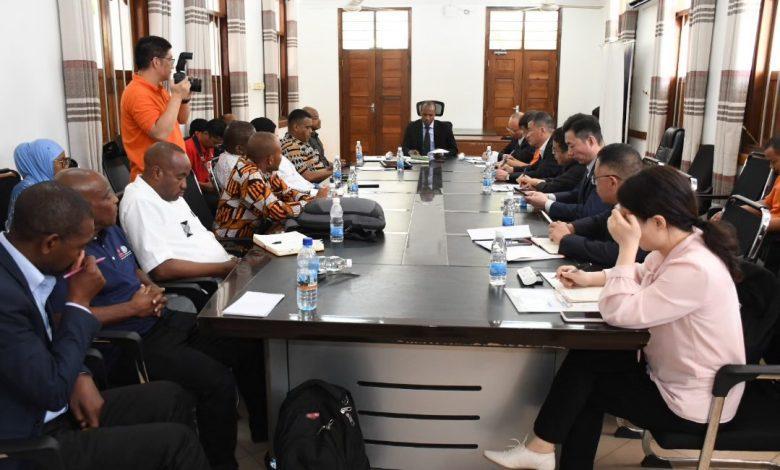Africa-Press – Tanzania. THE Zanzibar Ministry of Health has reaffirmed its commitment to deepen cooperation with China in order to strengthen health services across the islands, particularly in the fight against schistosomiasis and other diseases.
The Ministry’s Director, Dr Amour Suleiman Mohamed, made the remarks following a meeting with a delegation from Jiangsu Province Public Health Institute, which has long supported Zanzibar’s disease-control programmes.
He noted that the longstanding partnership includes the annual deployment of specialist doctors to hospitals in Unguja and Pemba, as well as extensive support in efforts to eliminate schistosomiasis especially in Pemba, where prevalence has now fallen to below one per cent.
The Chinese expert team has since shifted its operations to Unguja, working closely with the Ministry’s Neglected Tropical Diseases (NTD) unit and facilitating exchange programmes for health professionals from both sides.
Dr Amour added that the Jiangsu Province Institute also collaborates with the Zanzibar Health Research Institute (ZAHRI) in building technical capacity, conducting joint research and supporting evidence-based health planning.
In cervical cancer control, China has assisted in screening women across Unguja and Pemba to detect early signs of the disease and provide timely treatment, an intervention that helps to avoid the high costs of treating advanced cases.
The Director General for Disease Prevention and Control in Jiangsu Province, Dr Zhou Minghao, pledged continued support to Zanzibar’s health sector, including expanded professional training and strengthened diseasecontrol initiatives.
The local project supervisor for schistosomiasis in Pemba, Dr Saleh Juma Mohamed, welcomed the approval of the programme’s third phase, which aims to completely eliminate the disease in both Unguja and Pemba.
He noted that the second phase successfully reduced prevalence to one percent through community and school-based interventions, and that on-going efforts are now focused in Unguja.
For More News And Analysis About Tanzania Follow Africa-Press







